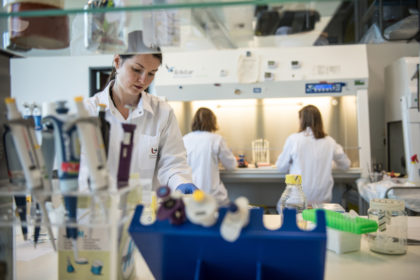
As postbiotics continue to trend among consumers, the International Scientific Association for Probiotics and Prebiotics (ISAPP) released a consensus definition on the category, published in Nature Reviews: Gastroenterology & Hepatology.
The panel of international experts that created the definition made it clear that postbiotics and probiotics are fundamentally different. Probiotics are live microorganisms; postbiotics are non-living microorganisms. The published definition states that postbiotics are a: “preparation of inanimate microorganisms and/or their components that confers a health benefit on the host.”
Inactive Microorganisms
A postbiotic could be whole microbial cells or components of cells, “as long as they have somehow been deliberately inactivated,” according to the news release by ISAPP. And a postbiotic does not need to be derived from a probiotic.
“With this definition of postbiotics, we wanted to acknowledge that different live microorganisms respond to different methods of inactivation,” says Seppo Salminen, professor at the University of Turku and the lead author of the definition. “Furthermore, we used the word ‘inanimate’ in favor of words such as ‘killed’ or ‘inert’ because the latter could suggest the products had no biological activity.”
The definition has been in the works for almost two years by authors from various disciplines in the probiotics and postbiotics fields. These include: gastroenterology, pediatrics, metabolomics, functional genomics, cellular physiology and immunology.
“This was a challenging definition to settle,” says Mary Ellen Sanders, ISAPP’s Executive Science Officer. “There are some who think that any purified component from microbial growth should be considered to be a postbiotic, but the panel clearly felt that purified, microbe-derived substances, for example, butyrate or any antibiotic, should just be called by their chemical names. We are confident we captured the essential elements of the postbiotic concept, allowing for many innovative products in this category in the years ahead.”
Growing Scientific Interest
Sanders continues: “The definition will be a touchstone for scientists, both in academia and industry, as they work to develop products that benefit host health in new ways. We hope this clarified definition will be embraced by all stakeholders, so that when the term ‘postbiotics’ is used on a product, consumers will know what to expect.”
Postbiotics have been on the market in Japan for years, and fermented infant formulas with added postbiotics are sold commercially in South America, the Middle East and in some European countries. ISAPP, in a release, notes: “Given the scientific groundswell, postbiotic applications are likely to expand quickly.”
The definition is the latest in a series of international consensus definitions by ISAPP. These include: probiotics, prebiotics, synbiotics and fermented foods.
- Probiotics: Live microorganisms that, when administered in adequate amounts, confer a health benefit on the host.
- Prebiotics: A substrate that is selectively utilized by host microorganisms conferring a health benefit.
- Synbiotics: A mixture comprising live microorganisms and substrate(s) selectively utilized by host microorganisms that confers a health benefit on the host.
- Fermented foods: Foods made through desired microbial growth and enzymatic conversions of food components.
